It’s flu season! Each year, 5-20 percent of the country’s population gets infected. If you’re part of this unlucky group, it’s important to respond appropriately to mitigate your symptoms and avoid infecting the people around you.

Listed below are some things you must do if you get the flu, along with some very important things to avoid.
Do Know the Difference
How do you know if you have the flu or just a common cold?
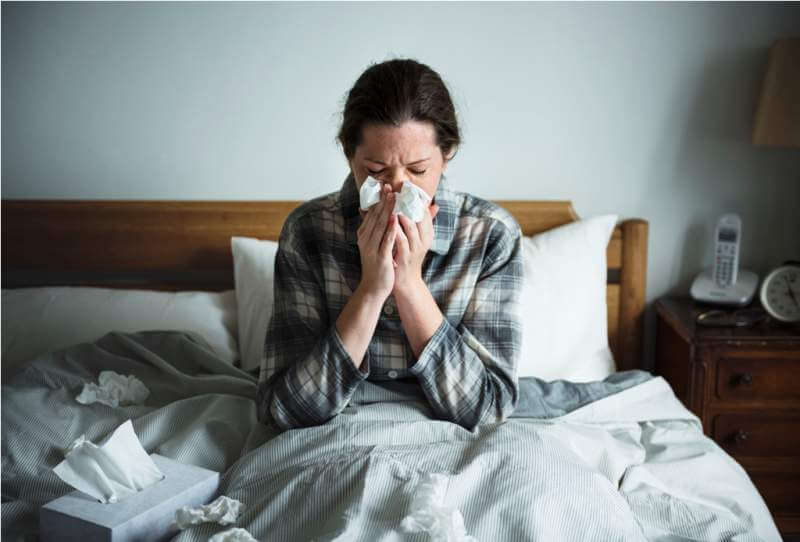
It can be hard to tell sometimes, especially since colds and the flu share a lot of the same symptoms. However, there are some important differences between these symptoms, including:
- Fever — the flu almost always comes with a fever, while a fever with a cold is rarer.
- Sore throat — this is more common with colds than the flu.
- Runny or stuffy nose — this is more common with a cold.
- Head and body aches — these are more intense with the flu.
- Fatigue — you’ll feel more fatigued with the flu than with a cold.
- Chills — more common with the flu.
Many people look for a fever as the first indicator that they have the flu and not a cold.
It’s great to use oral thermometers to check. But, it’s also important to note that not everybody who gets the flu has a fever, so you could still be infected if you’re experiencing other symptoms.
Do Know When to See the Doctor
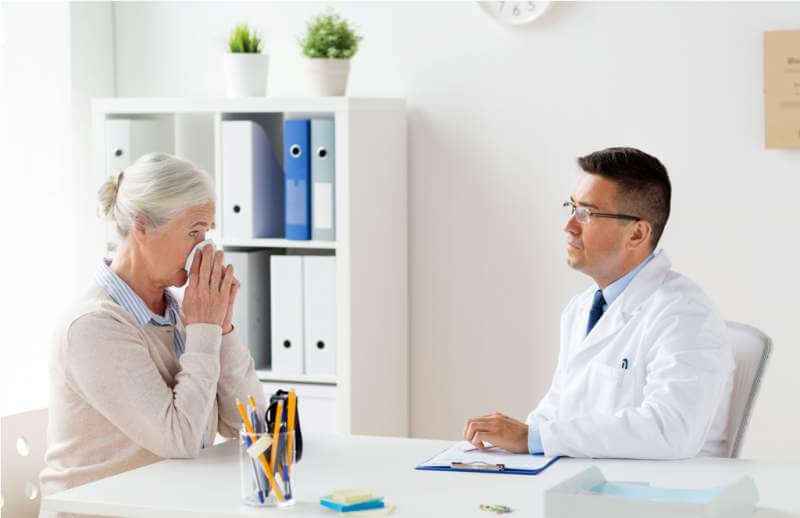 In most cases, you don’t need to seek out medical care when you have the flu. However, if you’re in a high-risk group, you should visit your doctor as soon as possible.
In most cases, you don’t need to seek out medical care when you have the flu. However, if you’re in a high-risk group, you should visit your doctor as soon as possible.
High-risk populations include young children, pregnant women, and people over the age of 65.
For people in these groups, it’s important to get in touch with your doctor as early as possible. The sooner you can start receiving antiviral treatment, the better. The Centers for Disease Control say that high-risk populations see the greatest benefit from treatment if it starts within two days of illness onset.
Do Stay Home and Rest
 If you’re not part of one of the high-risk groups mentioned, you should stay home from school or work and rest for at least 24 hours. The flu begins abruptly, unlike a cold. As soon as you notice symptoms, call in sick so you don’t infect any of your coworkers or classmates.
If you’re not part of one of the high-risk groups mentioned, you should stay home from school or work and rest for at least 24 hours. The flu begins abruptly, unlike a cold. As soon as you notice symptoms, call in sick so you don’t infect any of your coworkers or classmates.
Sequester yourself from the rest of your family as much as possible, too, to keep them safe. This is especially true if you have young children or live with older family members.
Make sure you also disinfect anything you touch and have your own drinking glass, towel, and washcloth to use while you’re sick.
Do Stay Hydrated
 If you have the flu, you should make sure you’re staying hydrated with lots of clear liquids. Plain water will be your best friend while you’re sick.
If you have the flu, you should make sure you’re staying hydrated with lots of clear liquids. Plain water will be your best friend while you’re sick.
In addition to water, you can mix things up by drinking bone broth, herbal tea, and sports drinks. You can also suck on ice chips or popsicles if you have a sore throat that makes swallowing difficult.
Do Take Over-the-Counter Medicines
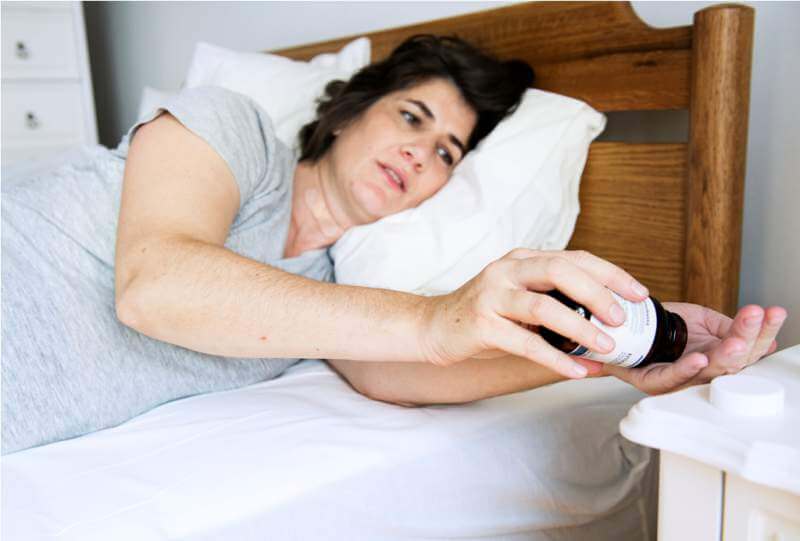 Over-the-counter medications like acetaminophen, ibuprofen, and aspirin (for adults only) are all fine to take to treat the aches and fever that typically accompany the flu. Just make sure you store them in a place where children can’t access them.
Over-the-counter medications like acetaminophen, ibuprofen, and aspirin (for adults only) are all fine to take to treat the aches and fever that typically accompany the flu. Just make sure you store them in a place where children can’t access them.
Don’t Take Antibiotics
 Remember that the flu is caused by a virus, so antibiotics will not have any effect on your symptoms.
Remember that the flu is caused by a virus, so antibiotics will not have any effect on your symptoms.
In addition to being useless for treating the flu, antibiotics also have a long-term negative effect on your gut microbiome. Since they kill off all the bacteria in your gut, including good bacteria, they can cause a number of unpleasant side effects, including upset stomach, diarrhea, and yeast infections.
Taking antibiotics when you don’t need them will also cause your body to develop a resistance to them, meaning they’ll be ineffective when they’re actually necessary.
Don’t Drink Alcohol
 Some people swear by alcoholic beverages to treat the flu. Alcohol can soothe a sore throat and suppress a cough. But, it also causes dehydration, something that you’re already at risk for when you have the flu.
Some people swear by alcoholic beverages to treat the flu. Alcohol can soothe a sore throat and suppress a cough. But, it also causes dehydration, something that you’re already at risk for when you have the flu.
Alcohol interferes with sleep, too meaning you won’t get as much rest as you need to help your body recover.
Don’t Use Nasal Spray
 If you have a stuffy nose, you might be tempted to reach for a nasal decongestant spray. These sprays can provide temporary relief, but they also cause extra dryness in the nose and throat.
If you have a stuffy nose, you might be tempted to reach for a nasal decongestant spray. These sprays can provide temporary relief, but they also cause extra dryness in the nose and throat.
When you use nasal sprays long-term, you’re likely to experience rebound swelling.
Don’t Go to the Emergency Room (Unless You Have These Symptoms)
 Most people don’t require treatment from their doctor to get over the flu, and they definitely don’t need to go to the emergency room. However, if you notice any of these warning signs, you should seek out emergency care immediately.
Most people don’t require treatment from their doctor to get over the flu, and they definitely don’t need to go to the emergency room. However, if you notice any of these warning signs, you should seek out emergency care immediately.
For infants and children:
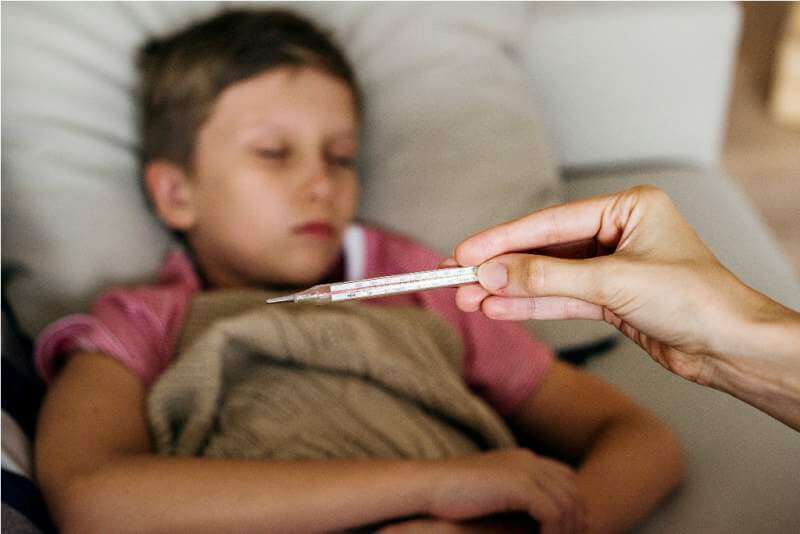
- Fast or labored breathing
- Skin takes on a bluish color
- Inability to eat or consume fluids
- Fever accompanied by a rash
- No tears when crying (infants)
- Fewer wet diapers than usual
For adults:
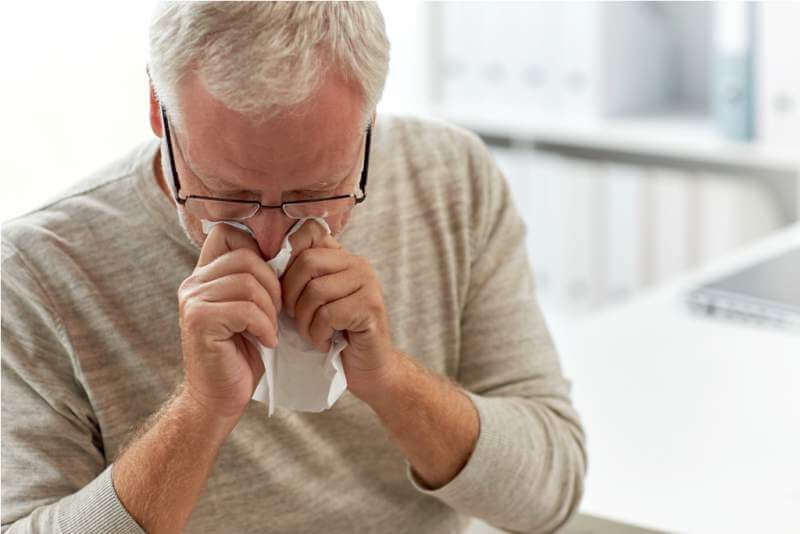
- Shortness of breath or difficulty breathing
- Pressure or pain in the abdomen or chest
- Dizziness
- Confusion
- Persistent vomiting
Do Get Vaccinated

Everyone older than six months of age should get a flu shot. Remember, too, that it’s never too late to get vaccinated, even after flu season has begun.
Even if you still get sick, the flu vaccine can help make your symptoms less intense and decrease your risk for complications, hospitalization, and developing other conditions. In case you cold further develops, you can check out sinus infection treatment in CT if you’re in the area.
You can get a vaccine from your local pharmacy, and it’s covered by almost every insurance plan.
Nobody wants to get the flu. Unfortunately, it’s inevitable for a lot of people, especially this time of year. If you do get infected, make sure you keep these tips in mind so you can get back to normal as quickly as possible.
